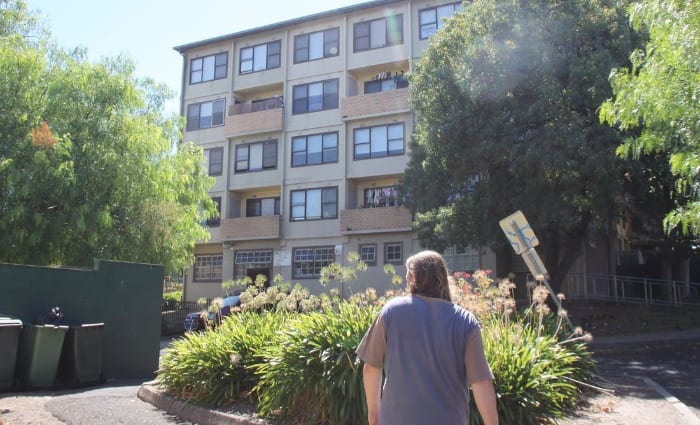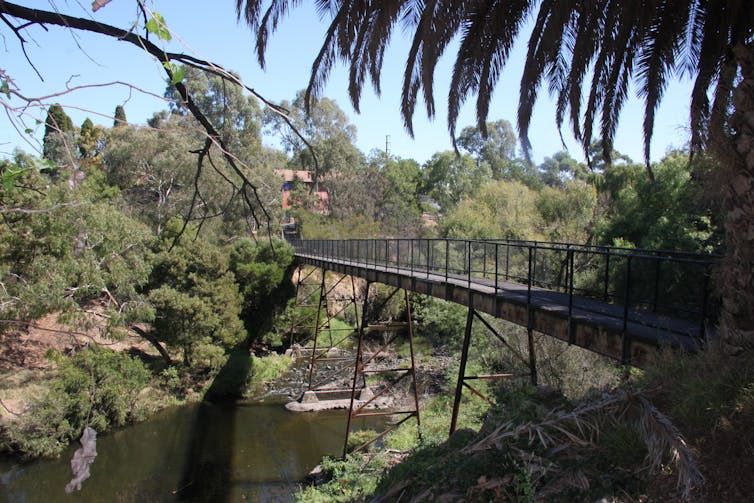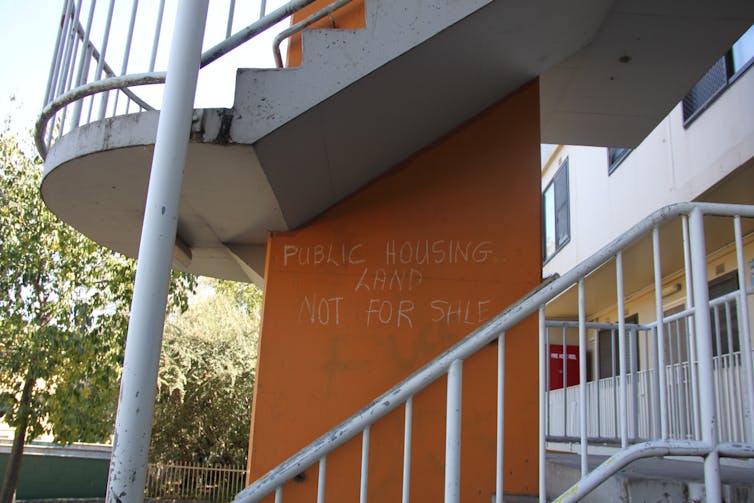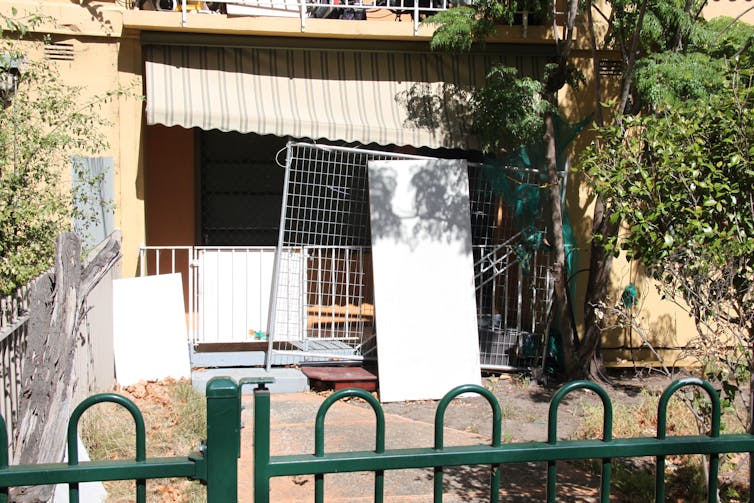Voices of residents missing in a time of crisis for public housing: David Kelly
GUEST OBSERVER
The 30% increase in the number of homeless people between the 2006 and 2016 censuses is likely to continue in the absence of evidence-based public housing policy. We need to rapidly extend public housing and services, according to housing and homelessness research.
Despite this research, the common approach by governments, in Australia and overseas, is to adopt a program of “renewal” and “regeneration” funded by the transfer of public lands to private hands. Housing estates are sold, transferred or redeveloped in partnership with a private developer. This often results in a shift of social housing dwellings from 100% publicly owned to mixed forms of tenure.
For public housing residents, being told that their estate is to be “renewed” is destabilising and can cause extreme stress. A lack of clarity about relocation timelines and processes compounds this.
The Northcote housing estate in Melbourne occupies prime real estate along Merri Creek. David Kelly
Similar issues in Sydney, Melbourne and London
Residents’ acceptance of this “renewal” approach varies greatly. While some are happy with the promise of a new home, opposition is growing in Australia and internationally.
The main issues being contested are planning approaches, consultation processes and the loss of public land overseen by housing authorities steering estate regeneration.
In Sydney, the government’s Communities Plus program is redeveloping public housing assets and land through partnerships with not-for-profit and private developers.
The City of Melbourne recorded a 74% increase in the numbers of people sleeping rough between 2014 and 2016. Opposition to the government’s public housing renewal program is now growing in Melbourne. The government is relocating residents from nine inner-city housing estates, demolishing homes and transferring public land to private developers.
In London, Harringey Council is working with Australian developer Lendlease to transfer over £2 billion in council assets, including several housing estates across the borough. In response, the Stop-HDV campaign is challenging the partnership and lack of community consultation through direct action, political campaigning, media representation and an ongoing legal challenge.
Opposition is fuelled by the redevelopment of the Heygate estate in Elephant and Castle. This has resulted in the loss of over 1,000 social housing units at council rental rates.
Affordable housing stock, rented at 80% of the standard market rate, replaced social housing. This makes it difficult for low-income residents to return to the estate.
Residents struggle to be heard
While government and developers undertake forms of consultation, residents affected by renewal repeatedly report that their voices are not being heard. This poses major problems for the reception of viable alternatives presented to development authorities by residents.
At a local scale, residents work to find other ways to make their voices heard. Visible across Sydney, a community light sculpture at the Waterloo estate expressed residents’ feelings about the redevelopment of their homes through coloured lights.
Other responses to regeneration by estate residents include theatre, book writing, spoken word and street art.
Graffiti protests against the sale of the Northcote estate. David Kelly
In Melbourne, the government claims the “renewal” of the nine estates will result in an increase of 180 (10%) public housing dwellings.
This claim requires closer scrutiny. On the Northcote estate, for example, there are 85 dwellings with 201 bedrooms. According to a government-commissioned report from September 2017, the public component of the redevelopment will have 96 properties with 139 bedrooms. That’s an 11% increase in dwellings, but a 31% decrease in bedrooms.
Even if the overall number of public housing bedrooms increased by 10%, this would not be enough. According to the Victorian Housing Register, in December 2017 there were over 36,000 applications for public housing and over 7,000 waiting for more adequate housing.
Alternatives need to be heard
One of the underpinning assumptions made by government is that dispersing disadvantage will lead to better outcomes for public housing residents.
This, and the resulting social mix, is the rationale for the program. This assumption is completely flawed. It imagines a fallacy of trickle-down socioeconomics achieved through minimal government spending.
A boarded-up public housing residence on the Northcote estate. David Kelly
Academic experts and public housing resident activists continually express their objections to the rhetoric of renewal. Kate Shaw, an urban geographer with expertise in housing and planning, says: "Pretty much everything about the program in its current approach is wrong."
Delegates at a December 2017 public housing forum in Melbourne called on the government to impose a moratorium on the process so alternatives can be heard. Yet voices continue to be ignored.
The progressive rhetoric of renewal obscures the displacement of residents, the fragmentation of lives and the privatisation of the public realm. Narratives of improvement drown out objections by residents and the wider public. Any argument against renewal is falsely equated with an argument against improving the lives of public housing residents.
This misdirection infects the public discourse around housing more generally. We are witnessing the complete reorganisation of the home. We think of homes as exchangeable stock.
For residents of public housing estates, the public realm is home, and home is a place of sanctuary and respite. The voices of residents need to be to the fore in the conversation if evidence-based public housing policy is to prevail. Retaining public places should be of interest to all who count themselves as part of the public.
David Kelly, PhD Candidate, Alfred Deakin Institute for Citizenship and Globalisation, Deakin University
![]() This article was written in conversation with public housing advocate and resident William Gwynne. The author thanks William for his integral insights.
This article was written in conversation with public housing advocate and resident William Gwynne. The author thanks William for his integral insights.
This article was originally published on The Conversation. Read the original article.



